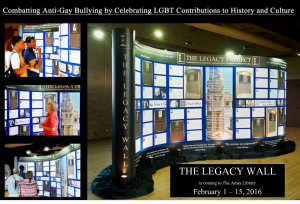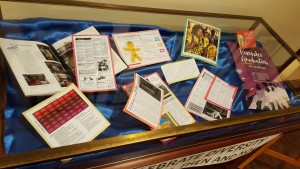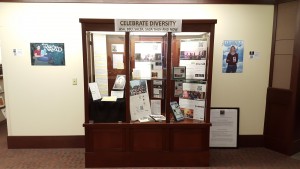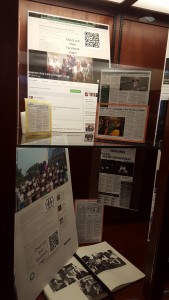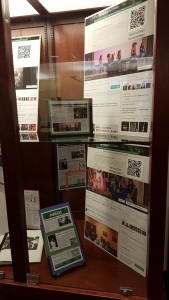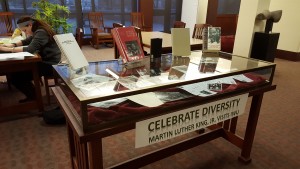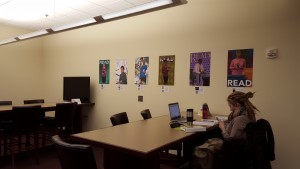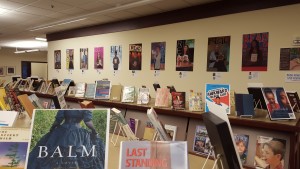Kanopy celebrates the role and achievements of African Americans in U.S. history through film. Our entire Black History Month collection is now available to watch here.
 Little White Lie What defines our identity, our family of origin or the family that raises us? Lacey Schwartz discovers that answering those questions means understanding her parents’ stories as well as her own. Little White Lie is a personal documentary about the legacy of family secrets, denial, and redemption.
Little White Lie What defines our identity, our family of origin or the family that raises us? Lacey Schwartz discovers that answering those questions means understanding her parents’ stories as well as her own. Little White Lie is a personal documentary about the legacy of family secrets, denial, and redemption.
 American Denial: Truth is Deeper than Black & White In his 1944 study of the ‘Negro Problem’ in America, Gunnar Myrdal posed a simple, disturbing question: How can Americans espouse a belief in liberty, equality and equal opportunity while enabling openly racist Jim Crow practices against black citizens?
American Denial: Truth is Deeper than Black & White In his 1944 study of the ‘Negro Problem’ in America, Gunnar Myrdal posed a simple, disturbing question: How can Americans espouse a belief in liberty, equality and equal opportunity while enabling openly racist Jim Crow practices against black citizens?
 The Rise and Fall of Jim Crow Offers a comprehensive look at race relations in America between the Civil War and the Civil Rights Movement. The story of the struggle during Jim Crow is told through the eyes of those who experienced it: W.E.B. Du Bois, Booker T. Washington, Ida B. Wells as well as everyday local heroes like “Pap” Singleton.
The Rise and Fall of Jim Crow Offers a comprehensive look at race relations in America between the Civil War and the Civil Rights Movement. The story of the struggle during Jim Crow is told through the eyes of those who experienced it: W.E.B. Du Bois, Booker T. Washington, Ida B. Wells as well as everyday local heroes like “Pap” Singleton.
 P.S. I Can’t Breathe (Black Lives Matter) On December 13th, 2014 a multicultural blanket of people united worldwide demanding justice for Eric Garner, a man killed by a Staten Island police officer. P.S. I Can’t Breathe provides a raw, uncensored glimpse into the Millions March NYC immediately AFTER a grand jury deliberated to not indict that same officer.
P.S. I Can’t Breathe (Black Lives Matter) On December 13th, 2014 a multicultural blanket of people united worldwide demanding justice for Eric Garner, a man killed by a Staten Island police officer. P.S. I Can’t Breathe provides a raw, uncensored glimpse into the Millions March NYC immediately AFTER a grand jury deliberated to not indict that same officer.
 T’Ain’t Nobody’s Bizness Excavates the hidden sexualities of Black female entertainers who reigned over the nascent blues recording industry of the 1920s. Unlike the male-dominated jazz scene, early blues provided a space for women to take the lead and model an autonomy that was remarkable for women.
T’Ain’t Nobody’s Bizness Excavates the hidden sexualities of Black female entertainers who reigned over the nascent blues recording industry of the 1920s. Unlike the male-dominated jazz scene, early blues provided a space for women to take the lead and model an autonomy that was remarkable for women.
T he New Black This documentary makes a compelling case that the fight for LGBT rights in Black communities is an extension of the Black Freedom Struggle. It takes viewers into the pews and onto the streets and provides a seat at the kitchen table as it tells the story of the historic fight to win marriage equality in Maryland.
he New Black This documentary makes a compelling case that the fight for LGBT rights in Black communities is an extension of the Black Freedom Struggle. It takes viewers into the pews and onto the streets and provides a seat at the kitchen table as it tells the story of the historic fight to win marriage equality in Maryland.
 Bridging the Divide: Tom Bradley – Politics of Race Thirty-five years before Barack Obama was elected President, the question of race and the possibility of bridging racial and ethnic barriers was tested in an overlooked and untold story in American politics: The 1973 election of Tom Bradley, the first African American mayor of a major U.S. city with a massive white majority.
Bridging the Divide: Tom Bradley – Politics of Race Thirty-five years before Barack Obama was elected President, the question of race and the possibility of bridging racial and ethnic barriers was tested in an overlooked and untold story in American politics: The 1973 election of Tom Bradley, the first African American mayor of a major U.S. city with a massive white majority.
 Emancipation Road The story of African Slavery in America started with the first permanent English Colony in the 17th century growing into and ended with the Civil War. But those two hundred and fifty years of struggle were just the beginning. The beginning of a journey down the long Emancipation Road.
Emancipation Road The story of African Slavery in America started with the first permanent English Colony in the 17th century growing into and ended with the Civil War. But those two hundred and fifty years of struggle were just the beginning. The beginning of a journey down the long Emancipation Road.
 Faubourg Treme: The Untold Story of Black New Orleans Long ago during slavery, Faubourg Treme was home to a large, prosperous, and artistically flourishing community of free black people. Here black and white, free or enslaved people co-habitated, collaborated, and clashed to create much of what defines New Orleans.
Faubourg Treme: The Untold Story of Black New Orleans Long ago during slavery, Faubourg Treme was home to a large, prosperous, and artistically flourishing community of free black people. Here black and white, free or enslaved people co-habitated, collaborated, and clashed to create much of what defines New Orleans.
T he Barber of Birmingham: Foot Soldier of the Civil Rights Movement 85 year-old barber and life-long civil rights activist James Armstrong looks back on the early days of the civil rights movement and links those struggles with a previously unimaginable dream — the election of the first African-American president.
he Barber of Birmingham: Foot Soldier of the Civil Rights Movement 85 year-old barber and life-long civil rights activist James Armstrong looks back on the early days of the civil rights movement and links those struggles with a previously unimaginable dream — the election of the first African-American president.
 American Experience: Freedom Summer In the hot and deadly summer of 1964, the nation could not turn away from Mississippi. Over ten memorable weeks known as the Freedom Summer, 700+ student volunteers, organizers and local African Americans joined in a historic effort to shatter the foundations of white supremacy in the face of segregation.
American Experience: Freedom Summer In the hot and deadly summer of 1964, the nation could not turn away from Mississippi. Over ten memorable weeks known as the Freedom Summer, 700+ student volunteers, organizers and local African Americans joined in a historic effort to shatter the foundations of white supremacy in the face of segregation.
 The Infamous T Homeless, bullied, and failing out of high school, 18-year-old Jonathon is ready for a big change. After a LGBT Host Home Program matches him up with a queer host family,he is struck by the culture-clash and haunted by a lifetime of homophobia and poverty. Jonathon soon realizes that home is more than four walls.
The Infamous T Homeless, bullied, and failing out of high school, 18-year-old Jonathon is ready for a big change. After a LGBT Host Home Program matches him up with a queer host family,he is struck by the culture-clash and haunted by a lifetime of homophobia and poverty. Jonathon soon realizes that home is more than four walls.
 Anita: Speaking Truth to Power Against a backdrop of sex, politics, and race, Anita reveals the intimate story of a woman who spoke truth to power. Directed by Academy Award®-winning filmmaker Freida Mock, the film is both a celebration of Anita Hill’s legacy and a rare glimpse into her private life with friends and family.
Anita: Speaking Truth to Power Against a backdrop of sex, politics, and race, Anita reveals the intimate story of a woman who spoke truth to power. Directed by Academy Award®-winning filmmaker Freida Mock, the film is both a celebration of Anita Hill’s legacy and a rare glimpse into her private life with friends and family.
 Freedom March Features the San Francisco civil rights protest march of May 26, 1963 in support of the Birmingham, Alabama Campaign against segregation led by Martin Luther King, Jr. Fifteen thousand people marched in response to a call by S.F. religious and labor organizations, just four months before the Birmingham Church bombing.
Freedom March Features the San Francisco civil rights protest march of May 26, 1963 in support of the Birmingham, Alabama Campaign against segregation led by Martin Luther King, Jr. Fifteen thousand people marched in response to a call by S.F. religious and labor organizations, just four months before the Birmingham Church bombing.
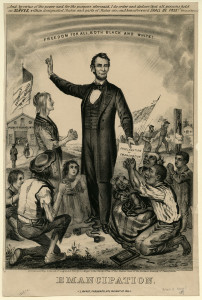 rough the generous support of a grant from the Library Services and Technology Act, over 800 prints, photographs, and pieces of ephemera documenting the African American experience will be digitized and added to the Library Company’s digital collections catalog ImPAC. A collection of national importance, the graphics depict African American life, community, work, art, and political and social activism from the early American period to the early 20th century.
rough the generous support of a grant from the Library Services and Technology Act, over 800 prints, photographs, and pieces of ephemera documenting the African American experience will be digitized and added to the Library Company’s digital collections catalog ImPAC. A collection of national importance, the graphics depict African American life, community, work, art, and political and social activism from the early American period to the early 20th century.


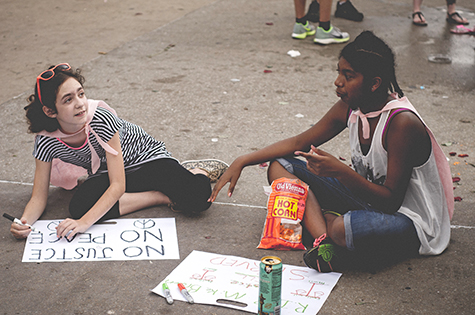














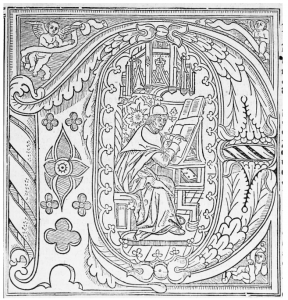
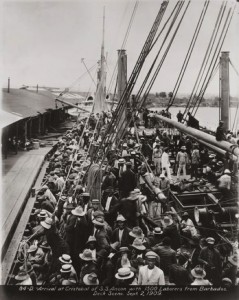
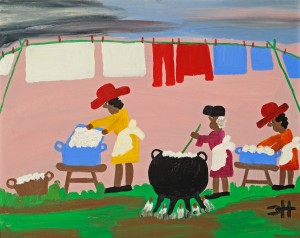
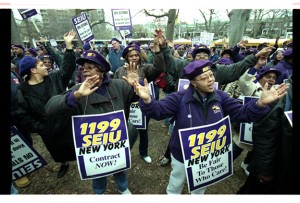
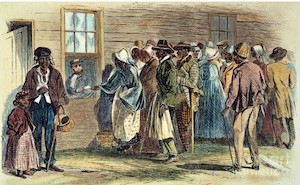 exing them to make them searchable online. Once indexed, it will be possible to find an ancestor by going to the site, entering a name and discovering a family member.
exing them to make them searchable online. Once indexed, it will be possible to find an ancestor by going to the site, entering a name and discovering a family member.